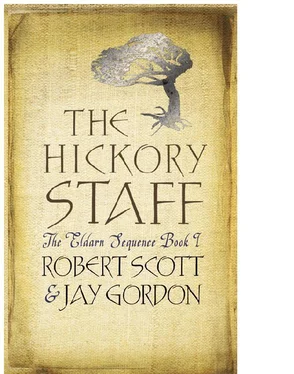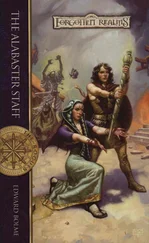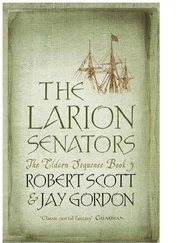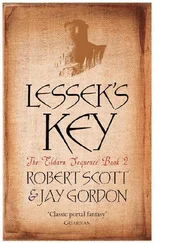Rob Scott - The Hickory Staff
Здесь есть возможность читать онлайн «Rob Scott - The Hickory Staff» весь текст электронной книги совершенно бесплатно (целиком полную версию без сокращений). В некоторых случаях можно слушать аудио, скачать через торрент в формате fb2 и присутствует краткое содержание. Жанр: Фэнтези, на английском языке. Описание произведения, (предисловие) а так же отзывы посетителей доступны на портале библиотеки ЛибКат.
- Название:The Hickory Staff
- Автор:
- Жанр:
- Год:неизвестен
- ISBN:нет данных
- Рейтинг книги:4 / 5. Голосов: 1
-
Избранное:Добавить в избранное
- Отзывы:
-
Ваша оценка:
- 80
- 1
- 2
- 3
- 4
- 5
The Hickory Staff: краткое содержание, описание и аннотация
Предлагаем к чтению аннотацию, описание, краткое содержание или предисловие (зависит от того, что написал сам автор книги «The Hickory Staff»). Если вы не нашли необходимую информацию о книге — напишите в комментариях, мы постараемся отыскать её.
The Hickory Staff — читать онлайн бесплатно полную книгу (весь текст) целиком
Ниже представлен текст книги, разбитый по страницам. Система сохранения места последней прочитанной страницы, позволяет с удобством читать онлайн бесплатно книгу «The Hickory Staff», без необходимости каждый раз заново искать на чём Вы остановились. Поставьте закладку, и сможете в любой момент перейти на страницу, на которой закончили чтение.
Интервал:
Закладка:
Higgins re-entered the mine barracks, calling out, ‘Lester, c’mon now, git that giant self of yours out here. We gotta get movin’ right quick.’
McGovern’s deep bass sounded like an out-of-tune cello: ‘I’m comin’.’
The rider came slowly towards the barracks. He looked directly at Henry Milken, but said nothing as the foreman approached, his hand extended.
‘Good mornin’. I’m sorry to say you made the trip all the way up here for nothin’. We gotta be in town in two hours. Did they not tell you that Mr Tabor wants us all in church every Sunday?’
The horseman offered no reply, nor did he shake Milken’s hand.
Milken tried again. ‘I’m Henry Milken. I’m the foreman here at the Silver Shadow. There’s a bit of coffee left; it tastes like old socks, but you’re welcome to a swig before we head out.’ He paused a moment and then, growing irritated, asked, ‘What’s your name, son?’
Still without a word, the stranger grabbed Milken’s outstretched arm and pulled it forward roughly; with his free hand, the horseman delivered a blow that split the foreman’s skull and killed him instantly. His body hung limp in the stranger’s grasp, twitching, until the horseman threw it carelessly to one side. It lay still in the heavy mountain mud.
Three shots rang out in rapid succession and bullet wounds opened in the horseman’s neck and chest. Without flinching, the stranger dismounted and strode slowly to the wagon, where he removed the axe Higgins had stowed moments before. Higgins fired again, this time hitting the stranger in the face and temple. The bullets tore through the horseman’s skull, blowing a large piece of his cheekbone and a section of the back of his head away. Oddly, the injuries bled very little.
The stranger came on, unhindered; stunned, Higgins dropped his pistol, knelt down in the mud near the wagon and waited for the horseman to strike him dead with the axe. He felt himself lose control of his bowels and found it odd that he didn’t care. He tried desperately to remember the things that had been most important to him – his mother, his wife, the daughter back in St Louis – but he could not organise his thoughts coherently.
Higgins knew he had only a few seconds to live. He made a final plea to God, and waited for the end – but the expected blow didn’t come. When Higgins risked a glance up, he saw Lester McGovern’s massive arms wrapped around the stranger from behind. McGovern held the man in the air and squeezed the breath from his lungs. The axe, forgotten, lay at their feet.
‘Kill him, McGovern! Crush the bastard,’ Higgins yelled, feeling hope for a moment, but the huge man’s strength did not seem to be affecting the silent stranger. The horseman gripped McGovern’s right forearm and began to squeeze. The burly miner screamed and Higgins heard both bones in McGovern’s forearm snap.
Desperate to live, McGovern held on with one arm, but the horseman was not slowed. Having freed himself from the giant’s powerful grip, the stranger methodically placed his hands on either side of McGovern’s head, anchored a foot against the big man’s chest and began pulling. Higgins watched in horror, unable to move, as McGovern struggled to scream. One arm hung limp, but he clawed at the horseman’s face with the other, pushing one of his huge fingers into the bullet wound in the killer’s temple. It had no palpable effect: the stranger was unstoppable.
William Higgins watched the tear begin on the left side of Lester McGovern’s neck. The big man’s breathing came in short, sickening bursts; he couldn’t say a word. The horseman continued to pull and in a fluid motion ripped McGovern’s head from his shoulders and tossed it into the back of the wagon. McGovern’s enormous body fell forward in a shower of blood and lay still.
The man reached down to retrieve the axe and walked slowly to where William Higgins still knelt in fear. Blood dripped from the killer’s hands. Higgins vomited, cried and begged for his life. Again, the expected blow never came.
‘You’ve ruined this,’ the horseman said as he probed the bullet wounds in his chest and face with a crimson finger. Higgins coughed twice, tried to catch his breath, and remembered the final bullet in his pistol. With his last measure of reason, Higgins reached for the gun and raised it to his own temple, but he was not quick enough, or strong enough in his resolve. That moment’s hesitation as he tried one last time to picture his daughter’s face cost him a painless escape. The horseman grabbed Higgins’s wrist and forced his shot wide of the mark. His gun was empty, but William Higgins was still alive.
He felt a burning sensation; a perfectly round wound opened on the back of his hand. Then Higgins screamed.
Gabriel O’Reilly opened the front door of the Bank of Idaho Springs just before 7.00 a.m. He lit the oil lamps and stoked the boxy cast-iron stove in the corner, smiling to himself when he saw a few hot coals left over from the evening before. He enjoyed mornings when he did not have to re-light the stove: it gave him a few extra minutes to brew coffee. It also meant the bank had not grown too cold overnight. In early October, days in the canyon remained warm, but the temperature often fell below freezing at night.
This morning his thigh ached: snow would be coming over the pass in the next day or two. His thigh was the best weather forecaster he knew, better than any almanac. O’Reilly had taken a Confederate rifle slug in the thigh at Bull Run; the Rebs called it Manassas. It had been a clean shot, and he’d got to a field hospital in Centerville before it got infected. Many of his fellow soldiers had not been so lucky. He knew he would never have made it to the western frontier if he’d lost his leg; now all he suffered were a slight limp and a mild ache with changes in temperature. He’d been luckier than most.
Bull Run had been early in the war, 1861, and at the age of twenty-two his tenure as a soldier was over. He could have gone back to the fighting, but a chance meeting with Lawrence Chapman during his convalescence had changed his future. Chapman, a wealthy businessman from Virginia, told him about a gold strike in Colorado; when O’Reilly had asked if he planned to open a mining company, Chapman had laughed and told him, ‘No, son, a bank. I don’t own any clothes suitable for mining.’
O’Reilly had worked in his hometown mercantile before enlisting in the army. Chapman offered him a job on the spot if he were willing to pack up and move west right away.
‘Time is wasting, my boy,’ Chapman told him. ‘All that gold is just lying around waiting for someone to provide a safe place to deposit or perhaps even invest a nugget or two.’
‘I appreciate the offer, Mr Chapman,’ O’Reilly said, ‘but I’ve another stretch to do for the army.’
‘You just rest here young man, and I’ll take care of that,’ Chapman said.
Two days later, Gabriel O’Reilly had an honourable discharge from the Army of Northeastern Virginia.
Before the war, O’Reilly had thought men who avoided conflict were cowards. After half a day at Bull Run he had seen enough killing to last a lifetime, and he had taken a bullet himself. That had been enough to convince him that getting out as soon as possible was not the bravest, but perhaps the wisest decision he could make. Six months later found him in Idaho Springs, Colorado, building a company and maintaining expense ledgers for Mr Chapman. Although there had been rumblings of both Union and Confederate support here in the mountains, and many men had travelled back east to enlist, for O’Reilly, the war was a distant memory.
That was nine years ago; now the Virginian owned a saloon, a local hotel, a mercantile exchange carrying goods shipped in each week from Denver, and the Bank of Idaho Springs. Two weeks earlier, he had named O’Reilly bank manager and handed over daily operations to him.
Читать дальшеИнтервал:
Закладка:
Похожие книги на «The Hickory Staff»
Представляем Вашему вниманию похожие книги на «The Hickory Staff» списком для выбора. Мы отобрали схожую по названию и смыслу литературу в надежде предоставить читателям больше вариантов отыскать новые, интересные, ещё непрочитанные произведения.
Обсуждение, отзывы о книге «The Hickory Staff» и просто собственные мнения читателей. Оставьте ваши комментарии, напишите, что Вы думаете о произведении, его смысле или главных героях. Укажите что конкретно понравилось, а что нет, и почему Вы так считаете.












